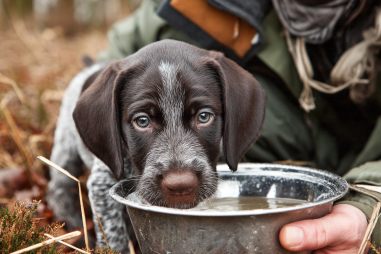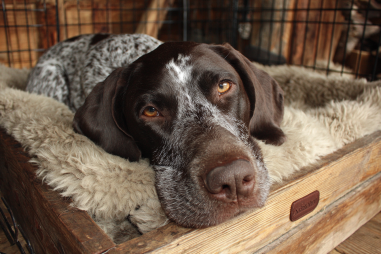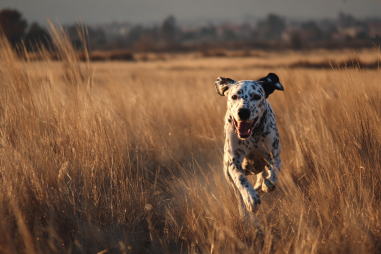Training your Pointer dog is a fulfilling journey that blends understanding, patience, and the right techniques tailored to this intelligent and energetic breed. Pointers are known for their keen instincts and high energy, making them excellent companions and working dogs when properly trained. By adopting effective training strategies, you can foster a strong bond with your Pointer, encouraging good behavior and a happy, balanced life. Here are some essential tips and insights to guide you through the process of training your Pointer dog successfully.
Understanding Pointer Intelligence and Trainability
Pointers are a breed celebrated for their intelligence and natural eagerness to please, which makes them highly trainable compared to some other dog breeds. Their history as hunting dogs means they possess sharp instincts and a strong desire to work alongside their owners. This intelligence can make training an enjoyable and straightforward task, provided the methods you use engage their mental capabilities and keep them motivated.
However, their intelligence also means they can quickly become bored if training sessions are monotonous or too repetitive. Keeping training varied, fun, and challenging is crucial to maintain their focus and enthusiasm. Also, Pointers are very sensitive to their owner’s tone and body language, so positive and encouraging communication works best when training them.
Basic Obedience Commands to Teach First
Starting your Pointer’s training with basic obedience commands lays a strong foundation for more advanced skills later on. Essential commands include:
- Sit: This command helps manage your Pointer’s excitement and keeps them steady.
- Stay: Teaching your dog to stay puts you in control, especially in situations where you want them to remain calm.
- Come: A critical command for safety, ensuring your dog returns promptly when called.
- Heel: This helps your dog walk calmly beside you, especially useful for outdoor walks and hunting scenarios.
- Down: Encourages a relaxed position and can help redirect hyperactive behavior into calmness.
Introduce these commands one at a time, in short sessions, and gradually increase distractions as your Pointer gains confidence. This helps them learn more effectively and remain motivated throughout training.
Positive Reinforcement Strategies
Positive reinforcement is a training method that rewards desired behaviors to encourage their repetition. For Pointers, this approach is especially effective because it not only rewards good behavior but also strengthens your bond through trust and clear communication.
Use treats, praise, toys, or a favorite game as rewards when your Pointer performs a command correctly. Choose rewards that your dog finds most motivating and timely rewards to reinforce the behavior immediately. Marking the correct behavior with a clicker or verbal cue like “Yes!” can also help your Pointer understand exactly what you want from them.
Avoid punishment or negative reinforcement, as this can create fear or anxiety, which hinders learning and damages your relationship with your dog. Instead, redirect unwanted actions and reward alternative, appropriate behaviors.
Dealing with Common Training Challenges
While Pointers are generally responsive learners, you may encounter some common training challenges:
- High energy and distractibility: Pointers have a lot of energy and can become easily distracted by scents, sights, and sounds. Keeping training sessions short but frequent, and gradually introducing distractions can help manage this.
- Stubborn moments: Sometimes, your Pointer may test limits or show stubbornness. In these cases, consistency is key—stick to your commands and routines without giving in.
- Recall difficulties: Because of their hunting instincts, Pointers may be tempted to chase birds or other prey. Strengthening recall command with high-value rewards and practicing in safe, enclosed spaces will improve reliability.
Patience and repetition are your best allies in overcoming these challenges, ensuring your Pointer stays on the right path.
Exercises to Channel Pointer Energy
Properly channeling your Pointer’s high energy is essential to prevent behavioral issues that stem from boredom and pent-up energy. Incorporate physical and mental exercises into your routine, such as:
- Long walks and runs: Pointers thrive on vigorous exercise and benefit from daily walks, jogs, or hikes.
- Fetch and retrieve games: These allow your Pointer to use their natural retrieving instincts while burning off energy.
- Interactive toys and puzzles: Mental stimulation is just as important as physical activity. Food-dispensing toys or puzzle games keep their sharp minds engaged.
- Tracking and scent work: Engage your Pointer’s hunting heritage by creating scent trails or hide-and-seek games indoors or in your yard.
Regularly mixing up activities can prevent boredom and make your training sessions more productive.
The Importance of Consistency and Patience in Training
Consistency and patience are fundamental to successful Pointer training. Dogs learn through repetition and routine, so maintain clear rules and commands across all family members. Mixed messages can confuse your dog and slow the learning process.
Patience is equally vital—while Pointers are quick learners, every dog progresses at their own pace. Celebrate small victories and avoid frustration when setbacks occur. Keeping a calm and positive attitude helps your Pointer stay motivated and confident.
Set realistic goals, keep training sessions upbeat and concise, and always end on a positive note. Over time, you will notice your Pointer becoming more obedient, attentive, and a well-behaved companion who understands and respects your expectations.
Training a Pointer dog may require effort, but with these effective tips, you can guide your intelligent and energetic companion toward becoming a well-mannered member of your family. Building a strong foundation with basic commands, using positive reinforcement, managing common challenges, and providing ample exercise are key elements in this process. Above all, maintaining consistency and patience will ensure a rewarding training experience for both you and your Pointer, fostering a lifelong bond filled with trust and mutual respect.







